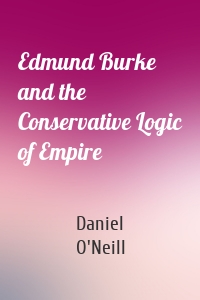Серия "Berkeley Series in British Studies"
9 кн.Скачать лучшие книги серии Berkeley Series in British Studies - автор Kieran Connell в формате fb2 или читать онлайн, бесплатно и без регистрации. Читаемые, полные версии книг, без сокращений - на сайте Knigism.online. Скачать книги полностью в количестве 9 шт.
Black Handsworth
In 1980s Britain, while the country failed to reckon with the legacies of its empire, a black, transnational sensibility was emerging in its urban areas. In Handsworth, an inner-city neighborhood of Birmingham, black residents looked across the Atlantic toward African and Afro-Caribbean social and political cultures and drew upon them while navigating the inequalities of their locale. For those of the Windrush generation and their British-born children, this diasporic inheritance became a core...
| Автор | Kieran Connell |
Edmund Burke and the Conservative L...
Edmund Burke, long considered modern conservatism’s founding father, is also widely believed to be an opponent of empire. However, Daniel O’Neill turns that latter belief on its head. This fresh and innovative book shows that Burke was a passionate supporter and staunch defender of the British Empire in the eighteenth century, whether in the New World, India, or Ireland.  Moreover—and against a growing body of contemporary scholarship that rejects the very...
| Автор | Daniel O'Neill |
Barbed-Wire Imperialism
Camps are emblems of the modern world, but they first appeared under the imperial tutelage of Victorian Britain. Comparative and transnational in scope, <I>Barbed-Wire Imperialism</I> situates the concentration and refugee camps of the Anglo-Boer War (1899-1902) within longer traditions of controlling the urban poor in metropolitan Britain and managing "suspect" populations in the empire. Workhouses and prisons, along with criminal tribe...
| Автор | Aidan Forth |
Distant Strangers
What does it mean to live in the modern world? How different is that world from those that preceded it, and when did we become modern?<BR /><BR /> In <I>Distant Strangers</I>, James Vernon argues that the world was made modern not by revolution, industrialization, or the Enlightenment. Instead, he shows how in Britain, a place long held to be the crucible of modernity, a new and distinctly modern social condition emerged by the middle of the nineteenth century. Rapid and...
| Автор | James Vernon |
Liberalism in Empire
While the need for a history of liberalism that goes beyond its conventional European limits is well recognized, the agrarian backwaters of the British Empire might seem an unlikely place to start. Yet specifically liberal preoccupations with property and freedom evolved as central to agrarian policy and politics in colonial Bengal. <I>Liberalism in Empire</I> explores the generative crisis in understanding property’s role in the constitution of a liberal polity, which intersected in...
| Автор | Andrew Stephen Sartori |
Governing Systems
When and how did public health become modern? In <I>Governing Systems</I>, Tom Crook offers a fresh answer to this question through an examination of Victorian and Edwardian England, long considered one of the critical birthplaces of modern public health. This birth, Crook argues, should be located not in the rise of professional expertise or a centralized bureacratic state, but in the contested formation and functioning of multiple systems, both human and material,...
| Автор | Tom Crook |
Aging in Twentieth-Century Britain
As today’s baby boomers reach retirement and old age, this timely study looks back at the first generation who aged in the British welfare state. Using innovative research methods, Charlotte Greenhalgh sheds light on the experiences of elderly people in twentieth-century Britain. She adds further insights from the interviews and photographs of celebrated social scientists such as Peter Townsend, whose work helped transform care of the aged. A comprehensive and sensitive examination of...
| Автор | Charlotte Greenhalgh |
Thinking Black
It was a common charge among black radicals in the 1960s that Britons needed to start “thinking black.” As state and society consolidated around a revived politics of whiteness, “thinking black,” they felt, was necessary for all who sought to build a liberated future out of Britain’s imperial past.<P>In <I>Thinking Black</I>, Rob Waters reveals black radical Britain’s wide cultural-political formation, tracing...
| Автор | Rob Waters |
Last Weapons
Last Weapons explains how the use of hunger strikes and fasts in political protest became a global phenomenon. Exploring the proliferation of hunger as a form of protest between the late-nineteenth and mid-twentieth centuries, Kevin Grant traces this radical tactic as it spread through trans-imperial networks among revolutionaries and civil-rights activists from Russia to Britain to Ireland to India and beyond. He shows how the significance of hunger strikes and fasts refracted across political...
| Автор | Kevin Grant |










